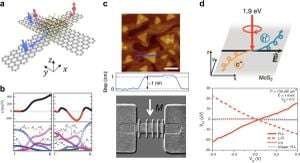Fuji Television has recently found itself embroiled in compliance issues and public scrutiny following the controversies surrounding presenter Nakai Masahiro. After Nakai acknowledged his involvement in misconduct, the network announced the formation of a third-party investigative committee to review its handling of the affair and address pressing questions about its internal practices.
On January 23, 2023, during news coverage by Nippon Television, the establishment of the committee was formally revealed. It will consist of three independent lawyers who have no ties to Fuji Television, aimed at examining how the network responded to Nakai's issues, including whether they had prior knowledge and how similar incidents had been managed. The committee's initiative is framed within the guidelines set forth by the Japan Federation of Bar Associations.
Professor Nishiama Mamoru, an expert on corporate risk management, emphasized the positive aspect of forming the committee. “I think it’s very forward-looking,” he said. “They should have mentioned the establishment of the third-party committee during the initial press conference. Although they have taken the first step, it is merely the beginning.”
Besides the investigative committee, Fuji Television is also planning to create an internal harassment prevention reform committee. This initiative raises questions about why such measures had not been implemented earlier, especially considering the rising concerns about harassment across many corporations.
Critics have pointed out the shortcomings of Fuji Television’s initial press handling. The company had restricted attendance to select media outlets during earlier meetings, which drew backlash from shareholders and the public, leading to calls for improved transparency. President Kanemitsu acknowledged the need for restoring trust swiftly, indicating the urgency of the situation.
When asked about the evaluation of the inquiry points, Professor Nishiama stated, “The issues raised are important, and I believe they have covered all bases sufficiently.” He noted the significance of determining the management’s judgment during the incident and whether similar issues have been systemic within the company.
The upcoming open press conference scheduled for January 27 is expected to draw intense scrutiny. While the new format allows more media presence, it also implies tough questions from critics. Nishiama noted, “I hope they correct the three major failures from the last press conference. They have to provide substantial explanations, address unanswered concerns, and demonstrate sincerity.” Transparency will be key to how Fuji Television is perceived going forward.
Simultaneously, Nakai's sudden announcement of his retirement just two weeks after issuing an apology compounded the situation's complexity. He cited the completion of discussions related to terminations and cancellations of contracts across various networks and sponsors before making his decision public.
This abrupt retirement combined with the fallout over Nakai's controversies has left many questioning the future of programming associated with him. Talents involved have claimed their appearance fees will still be honored regardless of whether the shows air. But legal experts, such as attorney Nakano Yutaka, note potential complications. “Compensation is typically owed for completed performances, regardless of whether programs air. But if the misconduct creates liability, it can complicate payment structures,” Nakano explained.
The discussions around responsibility become even more complex as Nakai's actions could shift liability onto Fuji Television, especially if one considers how networks typically respond to talent misconduct. There is concern among others affected by the fallout about the potential impact on their compensation as well.
Many media observers believe this incident marks a turning point for Fuji Television and the industry at large. “This is not just about Fuji Television; other networks will need to re-evaluate their management of talent and enforcement of compliance measures,” Nakano explained. The fallout may lead to stricter vetting processes for talent and a reevaluation of how content restrictions are enforced.
Overall, the entertainment industry is likely to see significant shifts as broadcasters strive to protect their brand integrity. While the public remains skeptical, it is clear the road to recovery involves substantial change within Fuji Television’s compliance structures.
Looking forward, how the company handles these challenges will be pivotal. The importance of maintaining stakeholder trust cannot be understated, and CEO Kanemitsu and the board are under pressure to deliver not just accountability but meaningful transformation within the company culture.
The path chosen by Fuji Television will set the tone for how such organizations navigate the public’s expectations of transparency and ethical conduct moving forward.



